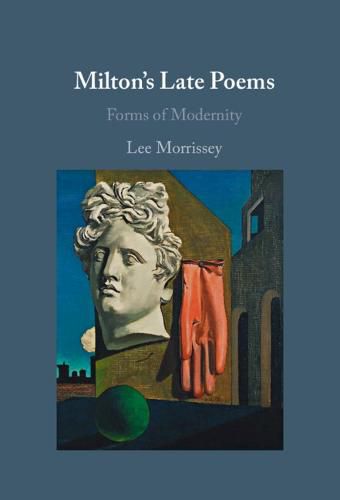Readings Newsletter
Become a Readings Member to make your shopping experience even easier.
Sign in or sign up for free!
You’re not far away from qualifying for FREE standard shipping within Australia
You’ve qualified for FREE standard shipping within Australia
The cart is loading…






Upending conventional scholarship on Milton and modernity, Lee Morrissey recasts Paradise Lost, Paradise Regained, and Samson Agonistes as narrating three alternative responses to a world in upheaval: adjustment, avoidance and antagonism. Through incisive engagement with narrative, form, and genre, Morrissey shows how each work, considered specifically as a fiction, grapples with the vicissitudes of a modern world characterised more by paradoxes, ambiguities, subversions and shifting temporalities than by any rigid historical periodization. The interpretations made possible by this book are as invaluable as they are counterintuitive, opening new definitions and stimulating avenues of research for Milton students and specialists, as well as for those working in the broader field of early modern studies. Morrissey invites us to rethink where Milton stands in relation to the greatest products of modernity, and in particular to that most modern of genres, the novel.
$9.00 standard shipping within Australia
FREE standard shipping within Australia for orders over $100.00
Express & International shipping calculated at checkout
Stock availability can be subject to change without notice. We recommend calling the shop or contacting our online team to check availability of low stock items. Please see our Shopping Online page for more details.
Upending conventional scholarship on Milton and modernity, Lee Morrissey recasts Paradise Lost, Paradise Regained, and Samson Agonistes as narrating three alternative responses to a world in upheaval: adjustment, avoidance and antagonism. Through incisive engagement with narrative, form, and genre, Morrissey shows how each work, considered specifically as a fiction, grapples with the vicissitudes of a modern world characterised more by paradoxes, ambiguities, subversions and shifting temporalities than by any rigid historical periodization. The interpretations made possible by this book are as invaluable as they are counterintuitive, opening new definitions and stimulating avenues of research for Milton students and specialists, as well as for those working in the broader field of early modern studies. Morrissey invites us to rethink where Milton stands in relation to the greatest products of modernity, and in particular to that most modern of genres, the novel.